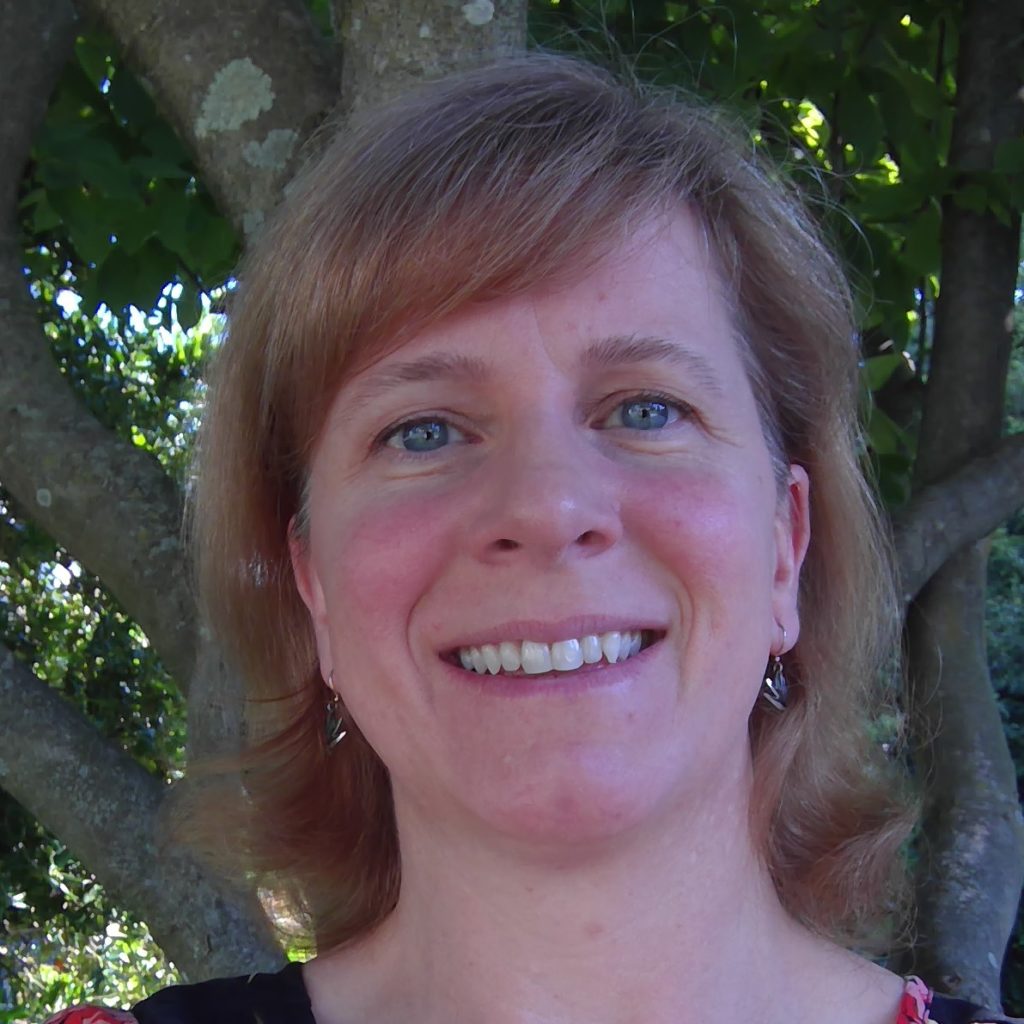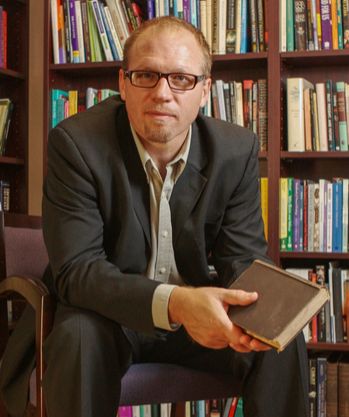Greetings, WesleyNexus Colleagues:
February, 2022 is the 16th year since the first Evolution Weekend. Initiated as part of the Clergy Letter Project, this event encourages people of faith from across the religious and philosophical spectrum to schedule events engaging discussion around the relationship between science and religion. WesleyNexus has sponsored a program each year since 2013 and continues to encourage others to join this important project. This year our own Jennifer Secki-Shields will be our presenter focusing on how perceptions of the relationship between science and religion can have negative impacts on ministry, This is particularly true of youth ministry. Since our founding, one of WesleyNexus’ primary objectives has been to emphasize how science and religion can be in constructive dialogue. While it is naive to think there can be one correct “answer”, engagement does provide hints on how these domains can become partners in constructing meaningful understandings to the challenges we all face in these difficult times. At the very least, it may move us to a greater understanding, humility, and openness. We hope you will join us virtually on February 12 for our 2022 Evolution Weekend program.
As always, we thank all who have contributed financially to WesleyNexus and Discovery and Faith. We are an all volunteer organization and will continue to use any funds to maintain our website and develop future programs.
Blessing,
Rick, Jennifer and the rest of the WesleyNexus team
**************************************************************************************************** UPCOMING EVENTS
Faith, Science, & Ministry:
How Perceptions of Faith-Science Conflict Diminish Our Ministry and What We Can Do About It
Saturday, February 12, 2022, 10:00 AM to 12:00 PM (Eastern Time) via Zoom
Hosted by the Frederick District of the Baltimore-Washington Conference (UMC) and WesleyNexus

Many pastors and churches assume that the faith-and-science dialogue is just an interesting academic discussion, unaware of how significantly it impacts the effectiveness of our ministry. Perceptions of conflict between faith and science contribute to the “drop out” problem—the loss of 60% of our young persons from the church and the faith after the age of fifteen—and present obstacles to faith formation, witnessing, and evangelism. This workshop will explore the challenges that we face in our mission and ministry as a result of the faith-science relationship and how we can meet those challenges within our already existing ministry areas (and budgets!).
To learn more, please contact Jennifer Secki Shields (connect@discoveryandfaith.org).
To register: https://us02web.zoom.us/meeting/register/tZwtf-mrqDwoHdCC6ZOpr__lDQ90qzsaarM3
After registering, you will receive a confirmation email containing information about joining the meeting.
****************************************************************************************************

Religions and Ecology: Restoring the Earth Community
Science and Ever Creation
with Dr. Thomas J. Oord
February 15, 2022
The program will begin at 4:00 PM CDT, 5:00 EDT, 2:00 PM PDT, 10:00 PM BST.
Hosted by The Institute on Religion in an Age of Science
Presentation Overview:
Nearly everyone wonders about ultimate questions and the possibility of an Ultimate Reality that many people call “God.” But only fools say that God can be known fully. Our human minds have limits, even as in our hearts we have notions of the divine, as partial and imprecise as these may be. A growing number of people are looking for alternative ways to think about the initial creation of our universe. The longstanding creation from nothing view (creatio ex nihilo) fails to fit many scientific insights. This view also implies an idea of divine power that leads to ethical, environmental, and doctrinal obstacles. In this session, Thomas Jay Oord proposes an alternative theory of creation. It says God, in love, everlastingly creates out of that which God previously created. In this scheme, God has always been creating, relating, and loving creatures, and time has no absolute demarcation. Our universe began with a big bang but may well be one in an everlasting succession of universes. Oord’s lecture draws from his forthcoming book, Pluriform Love: An Open and Relational Theology of Well-Being (SacraSage, 2022).
WesleyNexus’ own Ricky Ballew will serve as the Respondent to Tom Oord’s presentation.
About the February 15th presenter:

Thomas Jay Oord, Ph.D., is a theologian, philosopher, and scholar of multi-disciplinary studies. Oord directs the Center for Open and Relational Theology and doctoral students at Northwind Theological Seminary. He is an award-winning author and has written or edited more than twenty-five books. A gifted speaker, Oord lectures at universities, conferences, churches, and institutions. He is known for his contributions to research on love, science and religion, open and relational theology, the problem of suffering, and the implications of freedom for transformational relationships. Website: thomasjayoord.com
To register for the February 15 webinar: https://us02web.zoom.us/webinar/register/WN_rZo6ZbgjRMe6xIRwOTW73w
****************************************************************************************************
International Online Open and Relational Theology Conference
February 19, 2022
9:00 AM – 7:00 PM EST
This one-day online zoom conference features authors recently published in the field of open and relational theology. Authors confirmed to date include Sharon Baker Putt, John B. Cobb, Jr., Andrew Davis, Bruce Epperly, Catherine Keller, Matthew Korpman, Rory Randall, John Sanders, Matthew Segal, and Andrew Williams.
We realize conference attendees may not be able to participate every hour of the conference. So audio and video will be available to conference registrants for 90 days after the conference.
Hosted by Thomas Jay Oord, Jonathan Foster, and Brian Felushko
****************************************************************************************************
2022 Evolution Weekend by Michael Zimmerman
This year marks the 16th annual Evolution Weekend. While all participating congregations will address the relationship between religion and science, many will focus their attention on the theme selected for this year: The Pandemic, Climate Change and Evolution: How Religion and Science, Working Together, Can Advance Our Understanding.
11 – 13 February 2022 — Evolution Weekend
http://www.theclergyletterproject.org/rel_evolution_weekend_2022.html
****************************************************************************************************
The Climate Crisis: A Clergy Call to Action By Michael Zimmerman
Founder and Executive Director, The Clergy Letter Project
www.theclergyletterproject.org
Dear Members and Friends of The Clergy Letter Project,
This is a short but, I hope, helpful note. As you know, Evolution Weekend 2022 (11-13 February) is quickly approaching. If you’ve not yet signed up to participate, here’s a simple and effective thing you might do!
Please think about sharing our Climate Crisis Letter with you parishioners. This wonderful letter, jointly authored by clergy members and scientists, demonstrates the way religion and science can work together productively – especially when dealing with such a critically important topic. The letter, signed by over 1,000 clergy members from 14 countries, is certain to lead to robust discussion.
So, please think about sharing the letter, either in person or in your weekly bulletin. If you’ve not yet signed up to participate in Evolution Weekend 2022, please do so by replying to this note. Similarly, if you’ve not yet added your signature to the Climate Crisis Letter, please do so by replying to this note.
The Climate Crisis: A Clergy Call to Action
We are faced with a crisis today.
A multitude of human activities including the use of fossil fuels, large-scale agriculture, and large-scale land clearance have modified the natural processes that sustain life in every ecosystem and culture on the entire planet. This is no longer a question for debate. The question we (humans) must answer—and the impetus for this letter—is: “How will we respond to this crisis?”
We call on leaders from all of the many faith traditions and ethical communities throughout the world to unite with scientists, activists, and concerned citizens as one voice in calling for humanity to recognize the crisis, our role in creating it, and our collective responsibility to immediately identify and enact solutions.
Scientific understandings and religious teachings alike teach us that we are connected as one human family and, further, we are connected to all life. Thus, our own survival is inextricably connected to the responsible stewardship of the Earth and all its creatures.
The many faith traditions that exist across the world, while differing in specific beliefs and expressions of their convictions, share many common values. One of those is a commitment to care for the disenfranchised. We know that the people with the least access to resources experience the greatest suffering as a result of a changing climate. Ecological insecurity reinforces inequality. We have a moral and ethical responsibility to advocate for those who are vulnerable and/or voiceless.
We clergy signing this letter pledge ourselves to express our love for humanity and for all life on Earth by advocating for an immediate change in our behaviors that continue to threaten the health of the planet, its people, and their varied cultures. We urge you to join us in the education and motivation of our fellow planetary citizens, and to help us unite and to take the steps urgently needed to save our home.
We must remember, in this work, to be kind to one another. It is easy to let the panic, the frustration, and the pain turn us against one another, to speak in harsh judgment, and to act in self-righteous anger, but we will only move forward together. It is not only important what we do but how we do it. We must acknowledge our shared needs and celebrate our differences in meeting them – but do so with a compassionate, honest, and committed regard for the Earth and its inhabitants. This is what brings us joy in the work and hope for the future.
The climate is changing, but there is also evidence of a changing climate in public opinion and resolve. People are ready to insist on and be a part of the necessary change. People are ready to explore what it takes to remake our societies in response to this challenge; to turn the world around.
Our religious communities should lead in asking a simple question: How can we be good ancestors? A powerful question. A spiritual practice. A call to action.
Join us in this work. The time is now.
****************************************************************************************************
Book Review: Haught, John F. 2021. The Cosmic Vision of Teilhard de Chardin by Maynard Moore
The value of this book, in a word, is the way Haught brings us “up to date” so to speak with contemporary, on the edge, theology as we launch deeper into the 21st century. The frame for all of Haught’s theology, we know, is the contemporary scientific consensus that we – as humans on this earth – are living in an open universe whose destiny we – yes, we – as participants are helping to shape.
From Haught’s writings over the last four decades, we learn that the universe is a cosmic story – with a history, to be sure — but it is a drama unfolding, with us humans as participants in the play. Haught often bemoans the fact that too many theologians, while acknowledging this truth, have not revised their thinking and are wedded still to what Haught calls the “fixist” notions of the world, which surreptitiously assumes the stance of scientific materialism. As Haught explains in compelling detail Teilhard provides us with a vision of the future that is both consistent with our scriptural heritage and is congenial with modern science.
https://wesnex.org/wp-content/uploads/2022/02/Haught-book-review-1.pdf
****************************************************************************************************
Faith & Science 2022: Biologos Conference
San Diego
March 25 – 26, 2022

Faith & Science 2022 is the third BioLogos Conference. So what is BioLogos? Well, it all started with a scientist and a book. Francis Collins, the physician and geneticist who led the Human Genome Project, wrote the best-selling book, The Language of God, in which he tells his journey from atheism to Christian belief—showing that science is not in conflict with the Bible, but actually enhances faith. The outpouring of response to the book showed the need for virtual and in-person meeting places to better explore science and faith more thoroughly, and he launched BioLogos in 2007.
In that spirit, the Faith & Science conference is a gathering of Christians—including pastors, scientists, and anyone else with big questions about topics like origins, human identity, and the climate crisis. We’ll discover, worship, and fellowship together as we explore God’s Word and God’s World.
https://conference.biologos.org/about-faith-and-science-conference/ ****************************************************************************************************
Radio telescope image reveals Milky Way’s centre in stunning detail by Michael Banks
The MeerKAT radio telescope in South Africa has taken an image that shows the centre of the Milky Way in unprecedented detail.
****************************************************************************************************
Boltzmann and the Bridge Between Two Worlds
In the 19th century, Ludwig Boltzmann used atomic theory to explain thermodynamics, thereby creating a new field of physics called statistical mechanics. His work was initially controversial but has since become deeply influential because it touches on the nature of entropy, information and time. Later, with his sixth problem, David Hilbert challenged mathematicians to figure out how to use the Boltzmann equation to connect atoms with the everyday world of fluids and gases. The innovative work of Laure Saint-Raymond is successfully meeting Hilbert’s challenge.
https://www.youtube.com/watch?v=uJGyTcehW18
Credits:
Narrator: Steve Mirsky, Animation Production: ANIMADOCS, Director/Producer: Maria Stanisheva, Design/Animation: Adam Wells, Music/Sound Design: Timothy Bright
****************************************************************************************************
The Anthropic Principle
Anthropic Principle – The Big Bang Theory
https://www.youtube.com/watch?v=MsUo2_Z7Uog
Fine-Tuning: Is the universe fine-tuned for life? (John Templeton Foundation)
Imagine standing before a firing squad, with 50 trained marksmen aiming rifles at your heart. You’re certain that this is your last moment, but somehow the bullets all miss and you survive. This could simply be a very lucky coincidence; rerun the event enough times and the squad would be statistically likely to miss a few times. But chances are you would feel perplexed about your survival and want to seek answers about how this happened. This metaphor was put forward by John Leslie to demonstrate how the existence of life in the universe similarly relies on improbable cosmic conditions, with physical variables seemingly aligning perfectly to enable the evolution of intelligent beings (Leslie, 1989).
Read the research research review produced by the Foundational Questions Institute (FQXi) to learn more.
https://www.templeton.org/discoveries/fine-tuning
Is the Anthropic Principle Significant? | Episode 1904 | Closer To Truth
Is the Anthropic Principle significant? Here’s the claim: conditions of the universe relate to the presence of observers. Does the Anthropic Principle convey deep insights? Or thwart science? For sure, it’s often misunderstood and controversial. Featuring interviews with Bernard Carr, Pedro G. Ferreira, John Peacock, Luke Barnes, and Abraham Loeb.
https://www.youtube.com/watch?v=NMV9t-3rFNs
****************************************************************************************************
Devotional: Beauty is God-Deep by Greg Cootsona
Beauty means seeing things as they fit together. Being stunned by structure and proportion, we are drawn to learn more.
This is a profoundly important nexus for theology and science. Beauty is the very structure of the universe… put simply what God has imprinted on this world. And that’s why God’s creation is “Very Good.”
https://scieonnceforthechurch.org/2022/02/01/devotial-beauty–is-god-deep/
